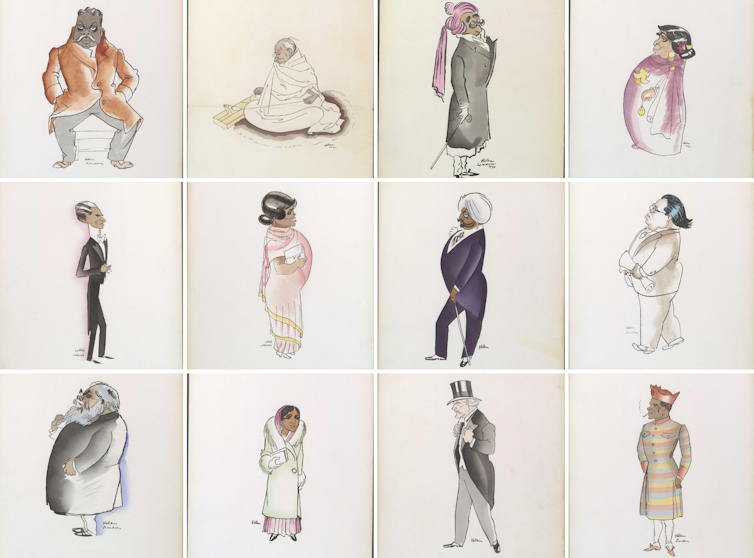Christy Thornton, Revolution in Development: Mexico and the Governance of the Global Economy (University of California Press, 2021)
Cross-posted from the Toynbee Prize Foundation
Christy Thornton’s Revolution in Development: Mexico and the Governance of the Global Economy (University of California Press, 2021) places Mexico at the center of histories of international economic governance. In the wake of Mexico’s exclusion from international capital markets following its 1914 default, she argues, Mexican economists and diplomats began to consider the nature of sovereignty, political and economic, and imagine a reconfiguration of international credit-debt relationships in order to foster development. Rather than envision autarky, Mexican leaders pursued a politics of both recognition and redistribution on the international stage from the interwar period to the crafting of the New International Economic Order (NIEO) in the 1970s. Recognition entailed equitable representation in multilateral institutions, while redistribution meant long-term, concessionary lending. According to Thornton, their reckonings with the existing international economic order presaged modernization and dependency theory and reached a climax when President Luis Echeverría Álvarez led the movement to author and pass the Charter of Economic Rights and Duties of States.
In offering a story of multiplicity and cooptation, Thornton reinterprets US hemispheric hegemony and provides an ambiguous, cautionary tale. Charting the interface of domestic and international politics, she traces the shift from a revolutionary social program to state developmentalism alongside Mexico’s advocacy for institutions aimed at international development. She assesses the rise and fall the project for an Inter-American Bank as first coopted by US planners, successfully resisted by US capitalists, and ultimately contributing to figures within the US government recognizing the importance of multilateral financial institutions as a pillar of hegemony.
Revolution in Development marks a major contribution to a wave of international history increasingly emphasizing the salience of the interwar period for economic thought (e.g. Jamie Martin, The Meddlers: Sovereignty, Empire, and the Birth of Global Economic Governance) and the role of thinkers from the Global South in shaping and challenging postcolonial and neo-colonial orders (e.g. Eric Helleiner, Forgotten Foundations of Bretton Woods; Adom Getachew, Worldmaking After Empire). Revolution in Development bridges these bodies of scholarship by crossing the “decolonization divide.”
In this roundtable, historians of debt and development from Egypt to India and international political economy in both the nineteenth and twentieth centuries respond to Thornton’s insight-filled and thought-provoking work. We have invited three scholars with wide-ranging perspectives—Elizabeth Chatterjee, Aaron Jakes, and Marc-William Palen—to offer responses to Revolution in Development. Christy Thornton then replies to the roundtable contributions. We thank them all for their engagement.
—Liat Spiro, College of the Holy Cross
Participant Bios
Christy Thornton is Assistant Professor of Sociology and Co-Chair of the Program in Latin American, Caribbean, and Latinx Studies at Johns Hopkins University. She is also the Co-Director, with Quinn Slobodian, of the History and Political Economy Project. A scholar of global inequality and development, labor and social movements, and Latin American political economy, she is author of Revolution in Development: Mexico and the Governance of the Global Economy (University of California Press, 2021). Before graduate school, she served as the Executive Director of the North American Congress on Latin America (NACLA), a 50-year-old research and advocacy organization. Her current project, “To Reckon with the Riot: Global Economic Governance and Social Protest,” investigates the impact of social protest around the world on international financial institutions (IFIs), asking how widespread protest against policy implemented at the behest of organizations like the World Bank, the International Monetary Fund, and the World Trade Organization was understood inside those institutions.
Elizabeth Chatterjee is Assistant Professor of Environmental History at the University of Chicago, where she specializes in energy history, critical infrastructure studies, and the history of capitalism in India. Her current book project, Electric Democracy, traces the flows of electricity to provide an energy-centered history of India’s transforming political economy since independence in 1947. Among other topics, her other recent and forthcoming publications explore the early history of solar energy and international development, the comparative political economy of “fuel riots,” and the place of Asia in the planetary history of the Anthropocene.
Aaron Jakes is Assistant Professor of Modern Middle Eastern History and the College at the University of Chicago. He is author of Egypt’s Occupation: Colonial Economism and the Crises of Capitalism (Stanford University Press, 2020), which explores both the political economy of the Egyptian state and the role of political-economic thought in the struggle over British rule in Egypt following the occupation of 1882. With interests in the historical geography of global capitalism, comparative studies of colonialism and empire, and environmental history, he has published articles in Comparative Studies of Society and History, Critical Historical Studies, Antipode, International Journal of Middle East Studies, and Arab Studies Journal. He is currently at work on a project tentatively titled Tilted Waters: The World the Suez Canal Made.
Marc-William Palen is Senior Lecturer at the University of Exeter and a member of the Centre for Imperial and Global History. His research focuses on British and American empires, exploring how political economy, gender, humanitarianism, and ideology have shaped global imperial expansion. He is author of The ‘Conspiracy’ of Free Trade (Cambridge University Press, 2016), which charts how the ideological conflict between free traders and economic nationalists reshaped Anglo-American party politics and imperial expansion in the mid-to-late nineteenth century. He is currently writing a history of the intersections of global capitalism, anti-imperialism, and peace activism from the mid-nineteenth to the mid-twentieth century.
Continue reading “Roundtable Panel—Christy Thornton’s Revolution in Development: Mexico and the Governance of the Global Economy”



You must be logged in to post a comment.